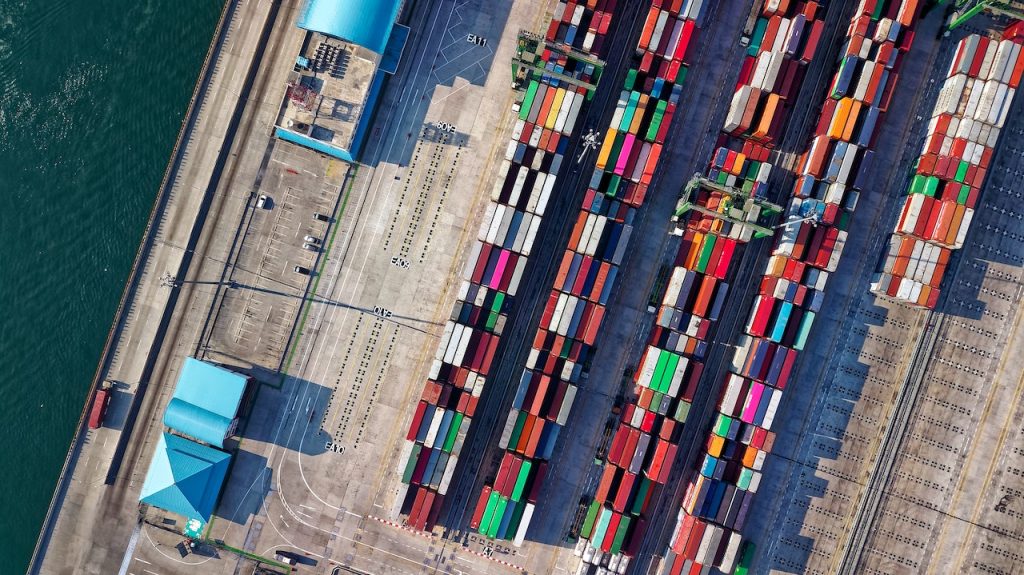The logistics industry is undergoing a significant transformation, driven by the rapid advancement of technology.
The next generation of supply chain management is being shaped by emerging technologies such as Artificial Intelligence (AI), Blockchain, and the Internet of Things (IoT). These technologies are not only revolutionizing the way supply chains operate but also providing unprecedented opportunities for efficiency and optimization.
The Power of Artificial Intelligence
Artificial intelligence (AI) and machine learning (ML) are redefining supply chain management by automating decision-making processes and enabling predictive analytics. AI-driven software can provide demand forecasting up to 12 weeks in advance, giving logistics companies insight into optimizing their operations.
For instance, AI can be used to develop predictive models to anticipate future customer demand, helping organizations plan their supply chain accordingly. This reduces operational expenditure and significantly improves efficiency.
Blockchain: A Game-Changer for Logistics
Blockchain technology is making a significant impact on the logistics industry. It provides a decentralized public record system that documents all changes to a record in real-time, enhancing efficiency by publicly recording the movements of each shipping container.
Blockchain can automate customs clearance processes, reduce compliance costs, and track shipments in real-time, minimizing the risk of delays or theft. This technology is redesigning delivery processes, increasing production levels, and improving supply chain efficiency.
IoT: Connecting the Dots
The Internet of Things (IoT) is changing how companies manage their supply chain and logistics. IoT devices, including sensors and trackers, connect computer systems through Wi-Fi networks, GPS, and other technologies to track products and deliveries.
Companies like Volvo and Amazon are already leveraging IoT to track vehicle components and manage warehouse operations, respectively. IoT devices can track the status of goods as they move through the supply chain, ensuring real-time data access, and efficient transaction execution.
The Role of Cloud Computing
Cloud computing is another technology trend that is shaping the future of supply chain management. It allows companies to track materials and products, get real-time updates, and inform customers about the status of an order. Cloud-based solutions enhance data storage space, integration, security, and information sharing, streamlining activities and processes across multiple devices and software users.
The Impact of Emerging Technologies
Emerging technologies are also playing a crucial role in managing outstanding debt in the logistics industry. Advanced analytics powered by AI can help companies predict potential financial risks and make informed decisions to prevent disruptions in the supply chain.
Similarly, blockchain technology can ensure transparency in transactions, reducing the chances of financial discrepancies and mitigating the risk of outstanding debt.
Augmented Reality: The Future of Warehouse Management
Augmented reality (AR) is another emerging technology that is set to revolutionize the logistics industry. AR can be used to create a digital interface over the physical world, providing real-time information to users. In the context of supply chain management, AR can significantly enhance warehouse operations.
For example, workers equipped with AR glasses can receive visual guidance for picking and packing items, increasing speed and reducing errors. Furthermore, AR can be used for training purposes, allowing new employees to learn procedures in a safe and controlled virtual environment. This technology not only improves efficiency but also enhances safety in warehouse operations.
Big Data: Enhancing Decision-Making Capabilities
Big data analytics is reshaping the logistics industry by providing actionable insights from vast amounts of data. It allows companies to analyze patterns, trends, and associations related to customer behavior and market dynamics. With big data, logistics companies can better understand their customers, predict demand, optimize routes, and manage inventory, leading to improved operational efficiency and customer satisfaction.
When combined with AI and machine learning, big data can provide predictive insights, enabling proactive decision-making and strategic planning. This technology helps logistics companies stay competitive in an increasingly data-driven market.
The Emergence of Autonomous Vehicles and Drones
Another transformative technology making waves in the logistics industry is autonomous vehicles and drones. Self-driving vehicles, including trucks and delivery vans, have the potential to drastically reshape supply chain management. They can operate around the clock, increasing efficiency by reducing delivery times and costs associated with human drivers, such as wages and benefits. Autonomous vehicles can optimize routes using real-time traffic data, reducing fuel consumption and emissions, thereby contributing to sustainability efforts.
Drones, on the other hand, offer a unique solution for last-mile deliveries, particularly in remote or hard-to-reach areas. They can bypass traffic and geographical obstacles, ensuring quick and efficient delivery of goods. Amazon, for instance, has been experimenting with drone deliveries through its project, Amazon Prime Air, aiming to deliver packages to customers within 30 minutes of ordering.
The integration of autonomous vehicles and drones into the logistics sector is still in its early stages, but the potential benefits they offer are immense. As these technologies continue to evolve and mature, they will undoubtedly play a significant role in shaping the future of supply chain management.
Conclusion
The integration of AI, Blockchain, IoT, and Cloud Computing is revolutionizing supply chain management, transforming the logistics industry into a more efficient, transparent, and cost-effective sector. As these technologies continue to evolve, they will undoubtedly unlock new possibilities for innovation and growth in the logistics industry. However, successful implementation requires a comprehensive understanding of these technologies and a strategic approach to integrating them into existing operations.

